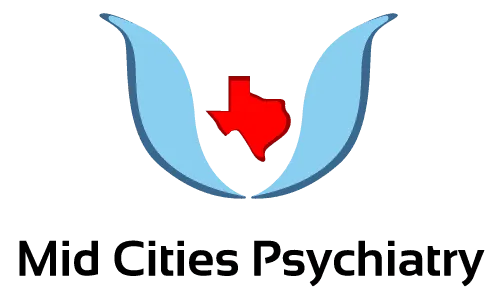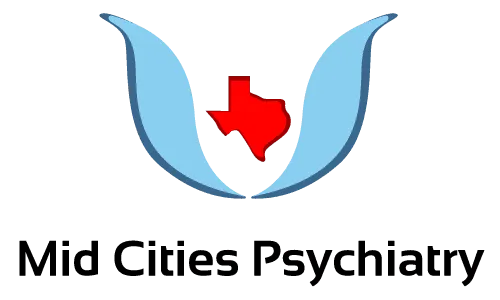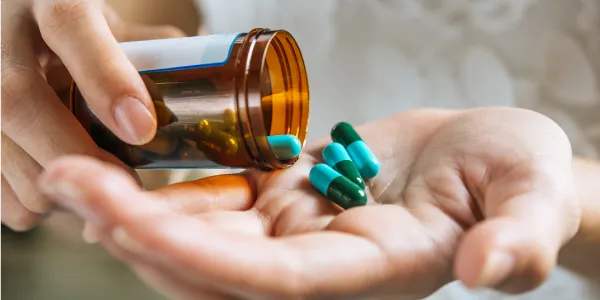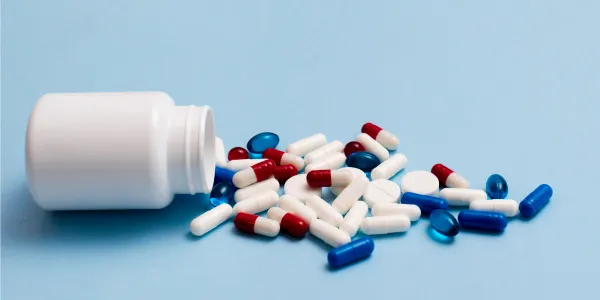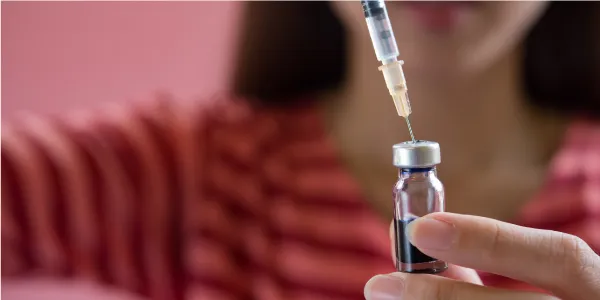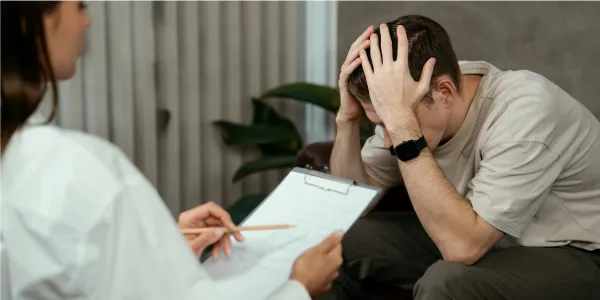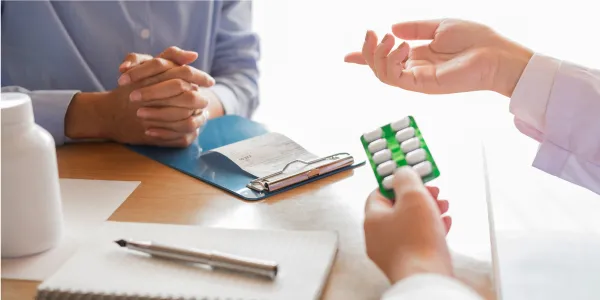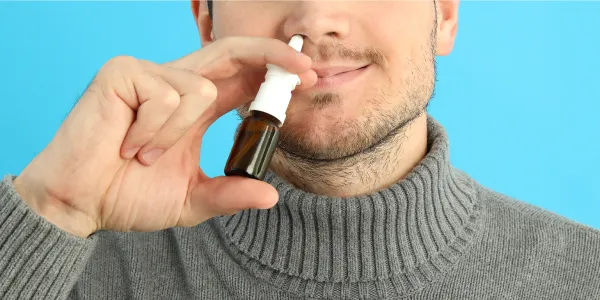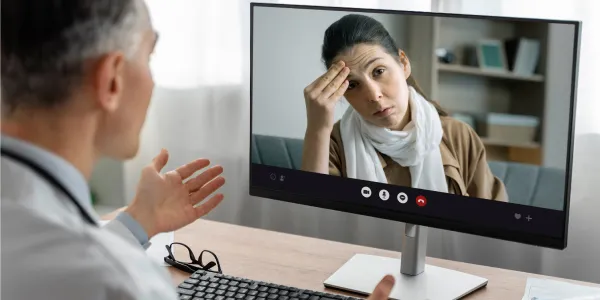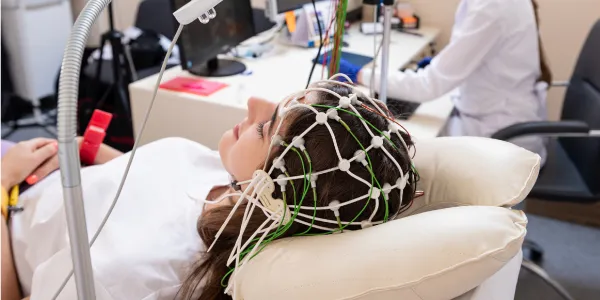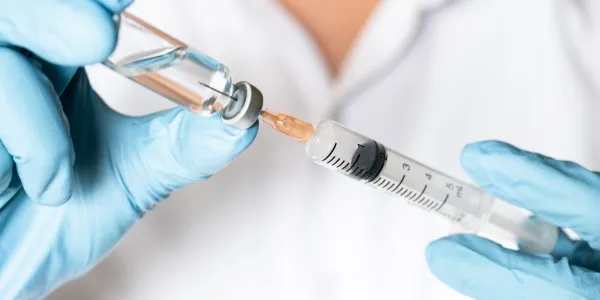Transactional Magnetic Stimulation
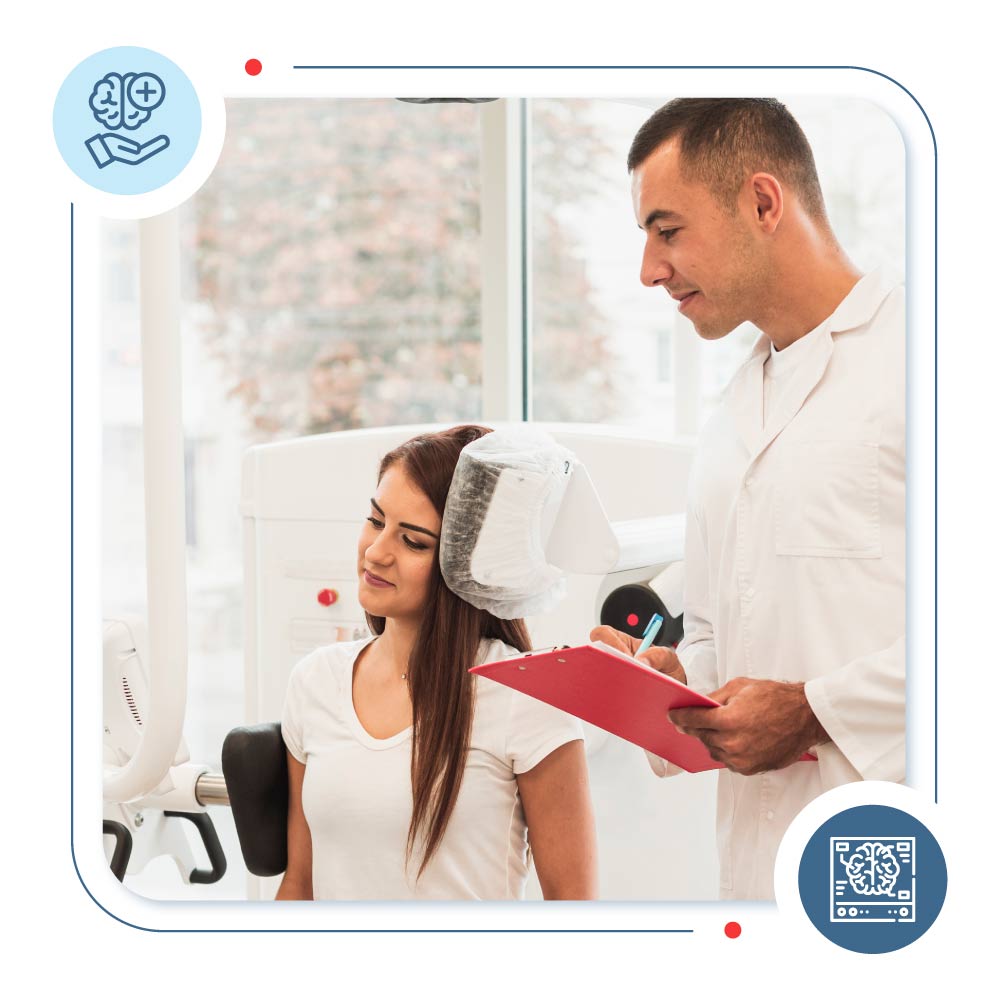
What is Transcranial Magnetic Stimulation (TMS)?
Transcranial Magnetic Stimulation (TMS) is an advanced treatment method that uses a magnetic coil to stimulate nerve cells in specific regions of the brain to regulate its natural electrical activity. TMS treatment is non-invasive and non-systemic, as it does not require surgery, anesthesia, or sedation, nor does it involve taking a pill that circulates through the bloodstream. TMS treatment is designed to improve symptoms of severe depression and anxiety. Approved by the U.S. Food and Drug Administration (FDA), TMS is applicable only when other depression treatments won’t work.
At Mid Cities Psychiatry, our dedicated team offers Transcranial Magnetic Stimulation (TMS) therapy. Whether you’re struggling with treatment-resistant depression or seeking an alternative to traditional therapies, our TMS specialists are here to help you. Take the first step toward feeling better with TMS treatment —schedule your TMS appointment today!

Who benefits from TMS therapy?
Psychiatric illnesses are curable through standard treatments such as psychotherapy and psychiatric medications. However, some people still face bothersome symptoms refractory to traditional treatments. We recommend TMS therapy if you’re battling with any of the following;
- Major depressive disorder
- Treatment-resistant depression: If you have major depression that has not responded to 2 or more different antidepressants
- Depression co-occurring with anxiety disorder
- Obsessive-compulsive disorder OCD
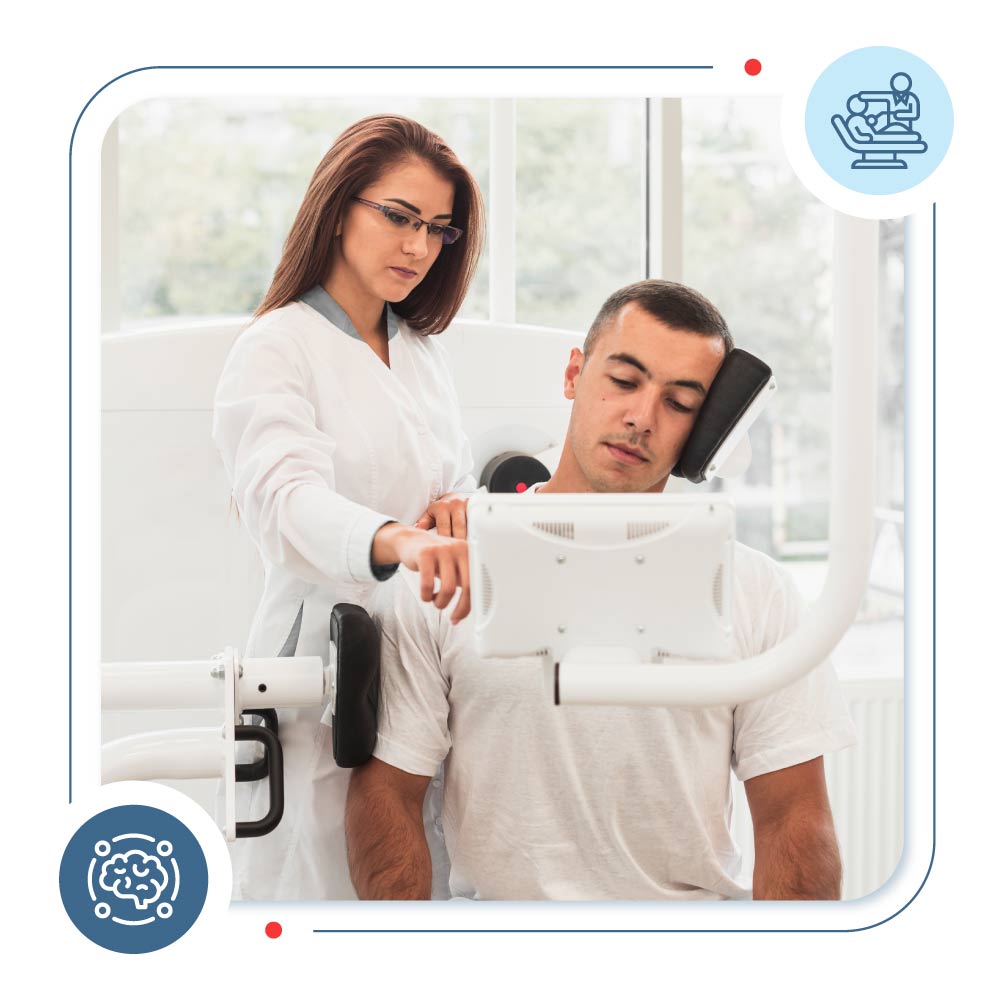

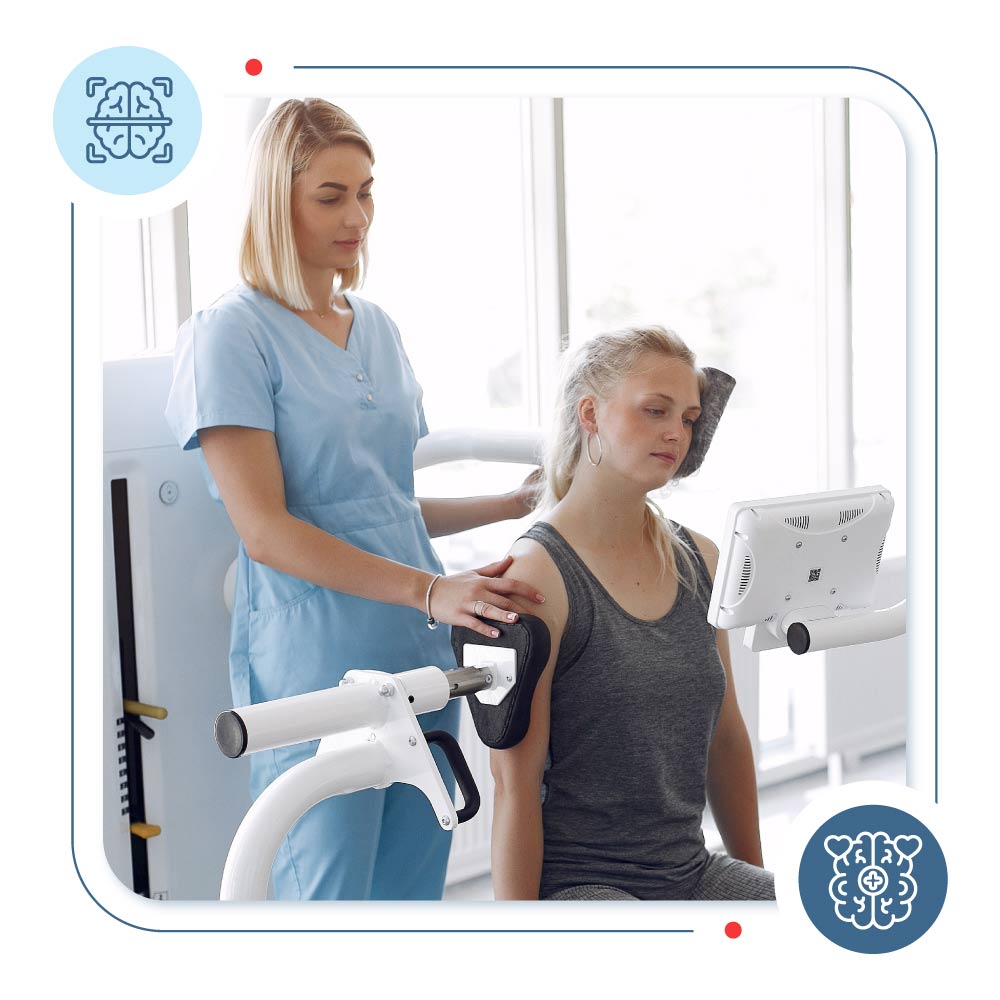
How does TMS work?
An electromagnetic coil is put against your head scalp during the TMS session. The coil stimulates the nerve cells in a brain using magnetic fields which activate the targeted parts of the brain.
Transcranial Magnetic Stimulation (TMS) is a non-invasive treatment that uses magnetic fields to stimulate nerve cells in specific areas of the brain. During a TMS session, our professionals place an electromagnetic coil gently against your scalp. This coil sends targeted magnetic pulses into the brain, which activate nerve cells in regions involved in mood regulation and depression. The stimulation can help improve communication between different parts of the brain and relieve your symptoms of mental health conditions such as depression or anxiety. At Mid Cities Psychiatry, we offer two main types of TMS:
RTMS: It’s a repetitive transcranial magnetic stimulation. rTMS to deliver repeated magnetic pulses to the prefrontal cortex of your brain. This area of the brain is related to regulating your mood. rTMS is especially helpful for treating major depression and OCD.
DTMS: It is a more advanced form of TMS where we use H-coil technology to stimulate much deeper and wider regions of your brain. TMS is potentially more effective for treatment-resistant depression along with MDD and OCD.

What should I expect during TMS therapy?
During your treatment, you’ll be seated comfortably in a cozy chair within a calm room. Our provider will place an electromagnetic coil on targeted areas of your scalp. You may feel a tapping sensation on your head and hear a clicking sound from the machine, so earplugs are provided for your comfort. Each session typically lasts between 20 to 40 minutes, depending on the specific treatment.
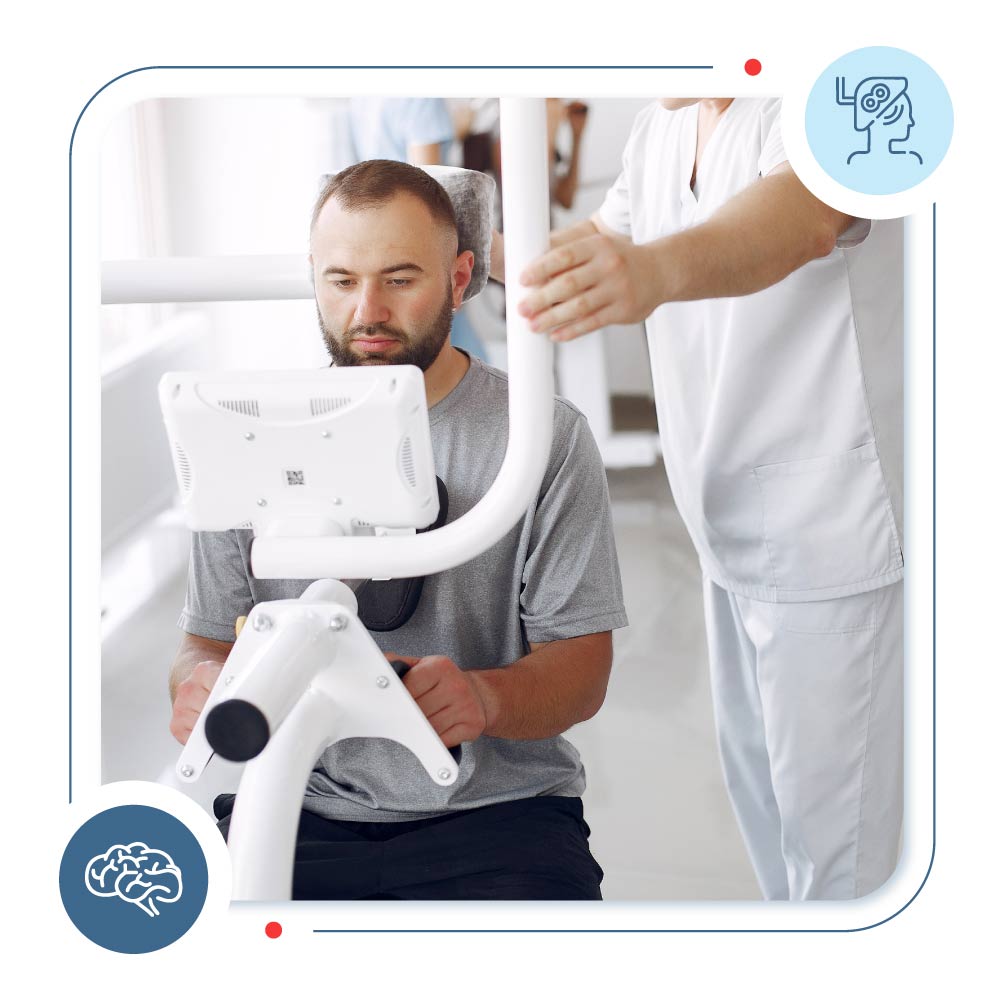

FAQs
01
What should I expect after the TMS therapy?
After undergoing TMS therapy, you can continue with your normal tasks. Although some people feel lightheaded or experience headaches afterwards, this is normal. You will need multiple TMS sessions over the course of at least one month to achieve the desired result. Remember, every patient’s needs are different. It may take time to experience relief from symptoms, but depression can improve significantly. After the therapy, you might also need psychotherapy to enhance the outcome.
02
Is TMS FDA-approved?
Yes, TMS therapy has been FDA-approved since 2008 for patients with anxiety and depression or for those who have failed to alleviate their depression through standard treatment such as antidepressant medication and psychotherapy.
03
What are the side effects of TMS therapy?
The most common side effects are transient pain, headaches, discomfort at the treatment site, or mild uneasiness or dizziness. In extremely rare cases, epileptic seizures may be induced (although no seizures were observed during TMS FDA clinical trials, which included over 10,000 treatment sessions). TMS is free of most side effects commonly associated with antidepressant medications, such as weight gain, sexual problems, or upset stomach.
04
When the TMS therapy shouldn’t be recommended?
First of all, you need to discuss with your provider what treatment is right for you. However, TMS should not be applied when any of the following conditions are present:
- You have metal of any kind in the head or brain area.
- You have a history of epilepsy.
- You have had a vascular, traumatic, tumoral, infectious, or metabolic lesion of the brain.
- You are pregnant (TMS treatment may be considered during pregnancy ONLY with the approval of the patient’s psychiatrist, obstetrician, and, if applicable, a pediatrician, who will carefully weigh the potential risks and benefits.)
05
What is TMS therapy cost?
Real Stories, Real Recovery





Mental Health Treatments Offered by Mid Cities Psychiatry
Buprenorphine Treatment is a medical intervention primarily for managing synthetic opioid,…
Clozaril is an atypical antipsychotic used to treat mental health conditions like schizophrenia and …
Life can be overwhelming at points where your emotions spiral out of control and relationships…
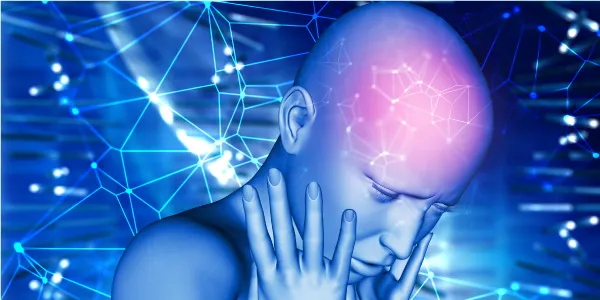
EMDR
The people you care about might stumble through tough times now and then. Guiding them toward…
Family psychotherapy, also known as family therapy, is a specialized form of counseling that…
At Midcities Psychiatry, our mental health professionals understand the deep impact of…
Individual therapy or psychotherapy is a one-on-one therapy session between you and a licensed…
An intensive outpatient program (IOP) is an organized, non-residential rigorous treatment plan…
Ketamine infusion therapy is an FDA-approved treatment of psychiatric disorders where…
Long-acting injectables (LAIs) are unique formulations of the same psychiatric medications …
Panic disorder is a common and serious mental health issue, but you are not alone. We understand…
Psychiatric medication management covers more than just advising drugs for your mental health issue…
Supportive Psychotherapy is a form of talk therapy that helps people emotionally by suggesting ways to…
SPRAVATO (esketamine) is a prescription drug that we use for adults battling with treatment-resistant…
Addiction doesn’t define you; it’s a challenge you need to overcome with the right support…
We provide you with comprehensive treatment options for mental health issues through…
Welcome to Mid Cities Psychiatry, your absolute companion for mental wellness, located in the heart…
Transcranial Magnetic Stimulation (TMS) is an advanced treatment method that uses a magnetic…
Supportive Psychotherapy is a form of talk therapy that helps people emotionally by suggesting ways to…
Vivitrol injection acts as a long-lasting medication for treating alcohol and opioid dependence…
